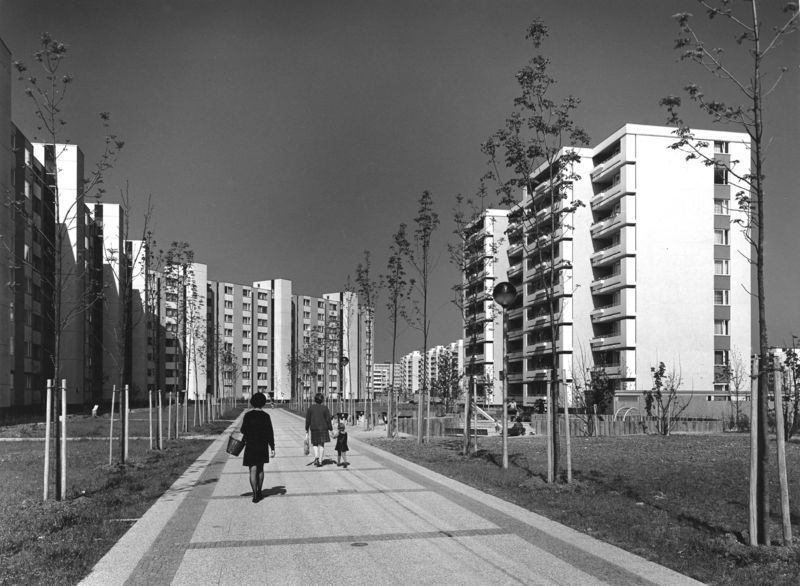A CENTURY OF LARGE HOUSING COMPLEXES IN MUNICH
Deutscher Werkbund Bayern - Monday Round Table
Monday, 13.11.2023, 8.00 pm
Orangery of the Café Reitschule, Königinstr. 34

Christiane Thalgott, former City Planning Councillor LH Munich
Andreas Hild, Head of Design, Conversion and Monument Conservation, LRL AR TUM, / New European Bauhaus (NEB) in Neuperlach: "Creating NEBourhoods Together"
Nicola Borgmann, Architekturgalerie München / New European Bauhaus (NEB) in Neuperlach: "Creating NEBourhoods Together"
Gerhard Gross, urban planning historian
Munich's largest (above-ground) construction site is on the western edge of the city, where a housing estate for 25,000 people is being built in Freiham. Such large urban development projects were considered to be a thing of the past when 'inner city development' was proclaimed as the guiding principle of urban development in the 1980s and 1990s in combination with the motto 'compact - urban - green'. In fact, Freiham is an urban planning legacy of the 1960s. However, there were already prominent predecessors such as Neuperlach, which was originally planned in parallel with Freiham. When the airport moved to Erding in 1992, the city was able to realise an urban quarter with a new planning concept under completely different conditions. In his recent book Neuperlach ist schön (Neuperlach is beautiful), Andreas Hild takes a fresh look at Neuperlach. With the EU-funded New European Bauhaus, it is to become a 'lighthouse project'. The motive for these large housing estates has always been the urgent need for affordable living space. This began in the 1920s with the New Housing estates built by city-owned companies, which were characterised by an urban planning model with lots of light, air and sun.
In our discussion, we want to look back over 100 years of housing estate planning in Munich and consider the projects in terms of the aspects that still dominate urban planning today:
who plans, who builds?
Who owns the land?
Are the residents allowed to have a say?
Which framework conditions were formative?
How do the urban planning concepts differ?
We will meet from 7.00 pm with the opportunity to order drinks and a small snack. The podium will open at 8.00 pm.
Location: Orangery of the Café Reitschule, Königinstr. 34